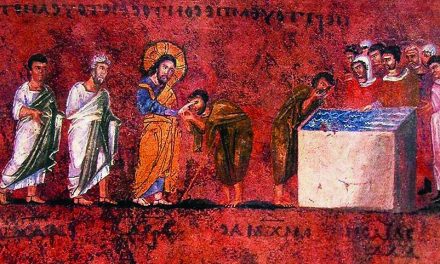In my reflection from two weeks ago on the first week of Advent I wrote the following:
My practice this Advent, therefore, is to remain present and open to all that comes with this busy season, to experience it in its fullness, while trusting that even when things become overwhelming I am not in control of the final outcome.
I did not anticipate how hard these words would be live out, but I was reminded of them again this morning as I read the newspaper stories piecing together what happened during the latest school shootings, tears running down my cheeks, while I listened to my children play in the background. I had avoided turning on NPR in the car, or watching the news, ever since I was informed that there had been another school shooting at an elementary school on Friday, because I wasn’t ready to hear the full story. I wanted to pretend this wasn’t happening – again! But when my wife brought in the Sunday paper and I saw the faces of people mourning together, I knew it was time to open up to the reality of the suffering occurring in Newtown and throughout our country. Drawing upon my meditation practice I tried to read these stories without moving into anger or blame, but staying present to this reality, here and now, and what came up was immense sadness. I realized how deeply this is affecting everyone when this morning at Mass there were prayers said for the victims and people of Newtown, and I saw everyone around me wiping away tears. In that moment, my mourning went from private to communal, as I realized that we are all feeling this in the pits of our stomachs.
There will inevitably come discussions and political divisions over how we respond as a nation to this tragedy. Questions about gun control, about access to mental health services, about families and parenting, and how to create a safer, saner, less violent world. And there will be the inevitable attempts to blame, rationalize, or make sense of what happened. These kinds of tragedies force us to ask fundamental questions about who we are, what kind of society we want to create, and how to respond to the violence within each of us, and around all of us. But there is a solidarity in our collective grief, and I think it would be a mistake to move beyond that grief too quickly.
I am reminded of a poem by the Vietnamese Buddhist monk, Thich Nhat-Hanh, that captures my experience this morning:
For Warmth
I hold my face in my two hands.
No, I am not crying.
I hold my face in my two hands
to keep the loneliness warm:
two hands protecting,
two hands nourishing,
two hands preventing
my soul from leaving me
in anger!
Anger is a natural reaction to meaningless violence and suffering, and it will come, and it can be channeled into skillful ways of responding to make the world a safer place. But there is a danger in moving into the anger too quickly, in skipping over the grief, because if we let the anger take over first, Nhat-Hanh is right, our souls may leave us, and we may respond in unskilfull ways that only foster more fear, anger, hatred, and eventually violence.
The grief over the innocent deaths of children and the adults who work lovingly with them contains a healing balm. In accepting it, and the underlying vulnerability and fragility of life that lies underneath it, there is a possibility of looking beyond our cultural and political divides, of seeing our common humanity and suffering, and asking the truly hard questions about how we create a society, a world, in which we don’t have to be afraid to send our children off to school in the morning.
Today is Gaudete Sunday – the Sunday of joy. Is it perhaps inappropriate to celebrate Gaudete Sunday on a day in which our whole nation mourns? I don’t think so. The joy that is possible by reflecting upon the Incarnation is not a joy built on a pie in the sky hope. Jesus Christ took on human flesh amidst the suffering of the people of Israel under Roman occupation, and he suffered himself, grieving over Lazarus’ death, suffering in his own body in crucifixion and death. No, the joy made possible by grace is a joy amidst the vulnerability and suffering of being human. It is fully awake to that suffering, and it is compatible with the tears that come from senseless suffering. Any other joy is a false joy, and our hearts can only experience this joy if they are softened by grief.
If we can grieve together in solidarity over our common vulnerable humanity, then maybe when we move into those necessary public deliberations about our social life together, we will be less quick to blame the other side for creating a dangerous world, and more open to seeking common ground in building up a peaceful social order. Of course, it will never be possible to create a world where senseless violence and suffering do not take place – for that is God’s work in the fullness of the Kingdom – but we can pay attention to how our words and actions either project our defensive anger into the world, or they open up a space for true dialogue and compassion to flourish. Let us grieve well together so that we can move forward together with hearts opened wider to our common humanity and vulnerability, so that we can truly hear each other and work skilfully to address the violence at the root of our culture.
For today, we are with those who are touched most closely by this tragedy, especially those who have died, and those who live to grieve their passing.
Eternal rest grant unto them, O Lord,
And may perpetual light shine upon them!



